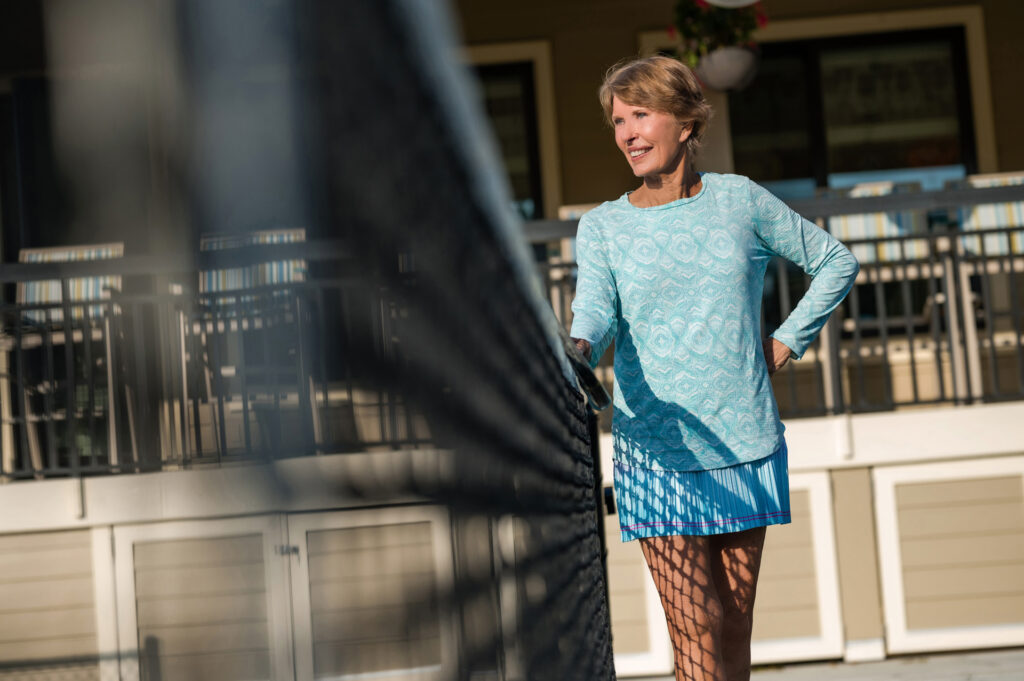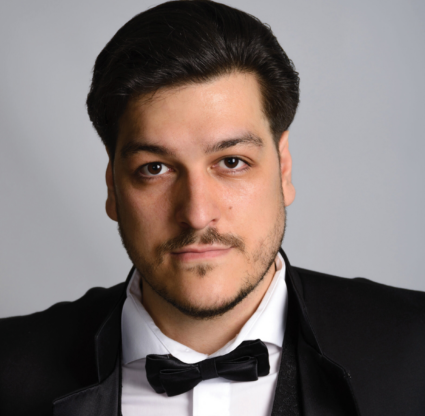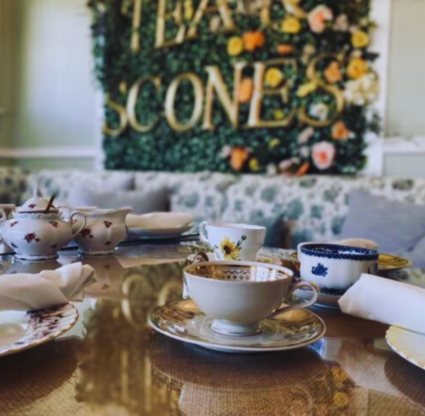After 65 years of playing tennis, Toni Novack hasn’t lost any zeal for the sport. The tennis pro teaches about 30 hours of lessons a week at Pelican Bay in Naples while squeezing in 90-minute personal practice and training sessions four days a week.
The sport is largely responsible for Toni’s youthful disposition. “When I look at the number, I can’t believe I’m this old,” she says. “I don’t feel old at all.” Toni was introduced to tennis in the 1950s when she was 9 and started taking free junior lessons every Saturday at Jacksonville Beach’s recreation center. Those lessons started her down a path that would bring her around the country on a national junior team as a teenager, to the University of South Florida on a tennis scholarship and finally around the world on open tennis tours during each subsequent decade.
At the end of 2022, Toni Novack ranked eighth in the world in the International Tennis Federation’s 70+ division, and she’s still basking in the glow of a victory at the Super-Seniors World Individual Championships in Palm Beach County in April 2022. According to the United States Tennis Association (USTA), the world championship event is the senior tennis equivalent of the Davis Cup or the Billie Jean King Cup—the largest international team tournaments for male and female tennis players, respectively. During the Super-Seniors last year, Toni and her three teammates in the women’s 70-and-over division never lost a match. “You have to really love the possibility of winning, of losing—just the thrill of it all,” she says. “And you have to be hungry for it.” That hunger keeps her on the court teaching as many as 40 lessons a week and loving what she does.
If you’re wondering what Fountain of Youth affords her the ability to play tennis at such a high level for so long, she’ll tell you that it is and always has been tennis itself. When people ask her what she does for cross-training, she often jokes by answering “doubles,” since she plays singles tennis so much. “It keeps you young physically because you’re in motion, you’re using energy, you’re doing something good for your body,” she says of the sport. “Also mentally—you have to hit the right shot in tennis if you want to win.”
A handful of recent medical studies confirm the sport’s physical benefits. Liverpool Hope University in England found that tennis players 50 years and older benefited from “significantly greater musculoskeletal health.” In other words, they were far less likely to suffer from osteoarthritis, osteoporosis or sarcopenia (a condition where the body’s muscles deteriorate), since the weight-bearing sport helps build and maintain bone density. The Mayo Clinic Proceedings also published a report in 2018 revealing playing tennis can increase a person’s life expectancy by almost 10 years. The mix of short bursts of activity, balance, hand-eye coordination and swift reaction times needed during the one-to-two-hour stretches of cardio-filled matches provides well-rounded conditioning in a fun, social setting. “It’s a great lifetime sport, so long as you know your limitations,” Toni Novack says.
In her younger years, when she was grinding across regional tennis circuits (USTA Missouri Valley or USTA Southern, for instance), Toni Novack often biked, ran or lifted weights to elevate her abilities on the court. These days, the exercise she gets from playing and teaching tennis provides her with all the conditioning she needs, but she points to other activities and interests that can strengthen a player’s game on the court. Anything that engages the brain—board games, backgammon, chess—and pursuits that promote rhythm and coordination, such as dancing, also pay dividends once a racquet is in hand.
After all, she says, tennis requires mental tenacity, but also the ability to think and strategize. It’s not unlike a physical form of chess or a more active poker game. “You want to be able to take control of the game, but you don’t want to show your hand too early,” she says. “You have to be thinking ahead. When you’re going to serve the ball, you know where it’s going to go, and if you understand percentage tennis (where each shot puts the odds in your favor), you likely know what’s going to happen next. You’re thinking three or four shots ahead in many ways.”
For Toni, the vitality she gets from tennis mainly boils down to her love for playing the sport. She feels fulfilled when she’s on the court. “You’re going to be a little healthier the happier that you are,” she says. And that pertains to tennis enthusiasts of all levels and proclivities. “There are all kinds of different tennis players; it just depends on what makes you happy,” Toni continues. “If you want to be a social player who goes out there to hit the ball around and not even keep score, that’s fine, too. You just have to find your happy spot.”





